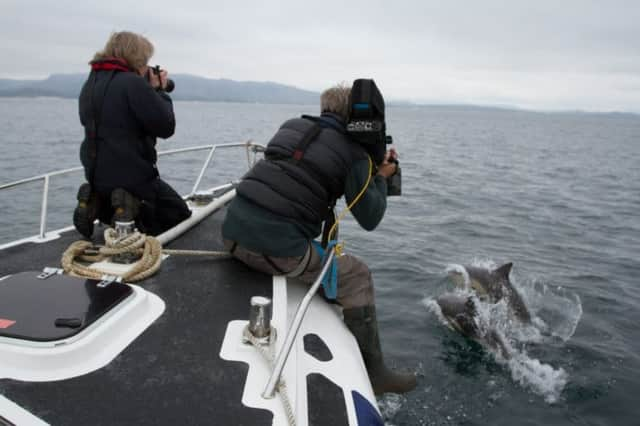Our precious sea areas need to rest


There is a mournful Gaelic proverb that can send a shiver down any spine – Cha bhi fios air math an tobair gus an tràigh e – the value of the well is not known until it runs dry. It’s an ancient version of a modern lament: “You don’t know what you’ve got ’til it’s gone”. It rings true for the previously abundant life beneath Scotland’s waves. After millennia of drawing from the well, we may be reaching the limits of our sea’s biological capacity. Fish, sharks, seabirds, seals, whales and dolphins have all suffered major population declines and many species are threatened or endangered. Over recent decades we have made a colossal impact upon what was once an unfathomable and resource-rich marine environment. Our top marine scientists – and Scotland has a fine pedigree here – now report that there is unlikely to be any pristine ecosystem remaining on our continental shelf. That is a worrying feat of human “progress”.
It is a complex problem. Pollution from our cities and farmland runs into the sea, and localised harvesting of the ocean was swiftly replaced by a much more industrial model. We now harvest intensively, largely for the export market, trawling the available seabed for scallops and scampi, and growing salmon in large, submersible cages.
Advertisement
Hide AdAdvertisement
Hide AdChanges in sea use have had serious social and environmental impacts – the shrinkage of the hugely valuable herring and cod fisheries, the rise of an often irrational fishing quota system, the ecological impacts of the MV Braer oil spill, the local extinction of oysters in the Forth, and a dramatic demise of west-coast sea trout and salmon runs. Meanwhile, rising sea-surface temperatures have led to population collapses in several seabird species.
But these cumulative losses have only recently begun to catch our politicians’ attention. Scotland’s deeply maritime culture means there has always been a powerful lobby for exploiting marine resources. It is no accident that, like so many other countries, we are only now responding to the global problem of marine degradation. But will we do enough?
In 2010, Holyrood enacted new laws intended not only to protect what is left in our seas, but also to “enhance” our marine environment. This means that our Government now has a legal duty to repair the historical damage. If the new law is implemented seriously, and as it was intended by Parliament, this should mean that the native forests of our seas – the kelp, maerl, seagrass, coral and living reefs – will flourish again. They can support great biological diversity, help restore our rich fisheries, underpin wildlife tourism and make our seas more resilient to climate change.
Until now, however, protected areas at sea have all-too-often languished as mere lines on maps – unmanaged, unenforced and ineffective. But after the 2010 Marine Act, and with the rising voice of coastal communities, the Scottish Government very recently designated a wider network of marine protected areas (MPAs), accounting for 23 per cent of our seas. This is a chance for a fresh start.
The plans have popular support. Last summer over 14,000 people backed proposals for up to 33 Scottish MPAs, but putting these lines on regulatory maps will be just the start. MPAs are not straightforward “No-Take-Zones”. An important debate about how we are to manage these complex areas for ecological recovery is still required.
It will not be easy. Take the Sound of Canna in the proposed Small Isles MPA for example. A rich underwater patchwork of stunning and fragile sea-fans, anemones, horse mussels, corals and feather stars, amid a unique fan mussel aggregation, is alarmingly confined to places just out of human reach. If all are to recover, there will need to be serious management rules.
This is where it becomes difficult. We can choose either to properly protect just the last few scraps of ecologically healthy seas – or we can acknowledge the historical decline and take genuine actions to reverse it. The first option would preserve some of our precious sealife – like the Honours of Scotland but with very, very few visitors. The second option could give us all the benefits of wider recovery. Surely we need MPAs that give areas of our sea a rest, and provide the conditions for an ecological bounce-back?
Some of those who stand most to benefit from recovery in the long run are fearful of yet more red tape and regulation in the short term. Government must take these concerns seriously and offer patient assistance to fishermen and developers as new management comes into force. But for the sake of our seas and all the industries that rely upon them, we need to do what is right. This must be an exercise in marine recovery. We can put a bold new Scottish MPA network to the genuine test, or we will all feel the pain of this “well” running dry.
• Calum Duncan is convener of LINK’s Marine Task Force
SEE ALSO